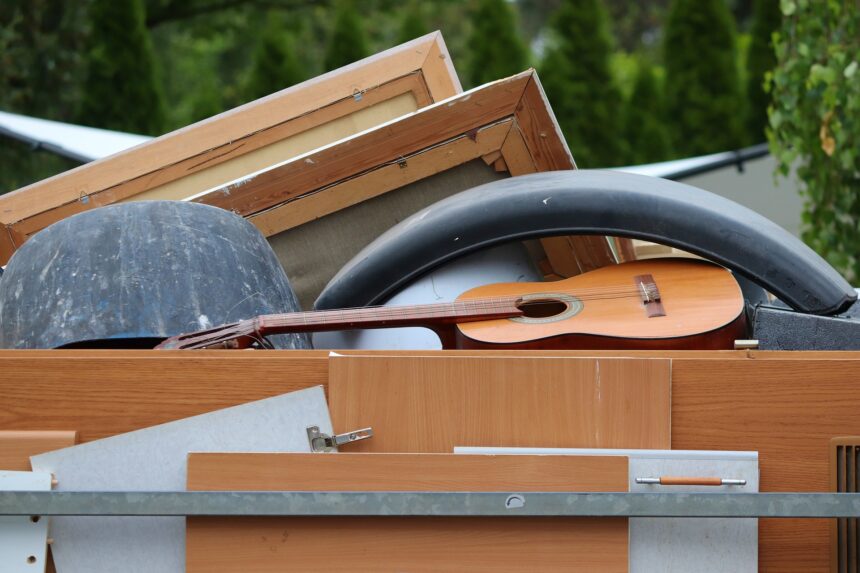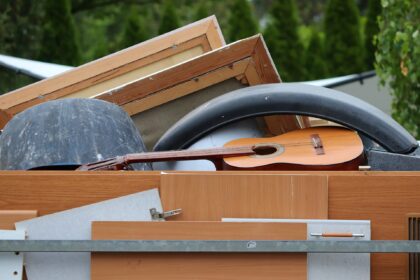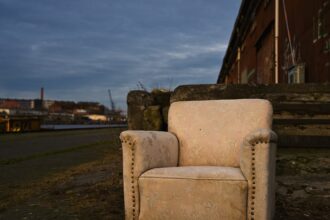In today’s fast-paced world, we are often overwhelmed by the physical and mental clutter that invades our lives. From overflowing closets to the endless stream of digital distractions, the accumulation of “stuff” can weigh heavily on our well-being. Decluttering is not just about tidying up—it’s a transformative process that can lead to a more peaceful, productive, and joyful existence. Here, we delve deep into the art and science of decluttering and how it can become a cornerstone for a happier life.
The Psychological Impact of Clutter
Clutter has a profound effect on our minds. Studies have shown that living in a disorganized environment increases stress, hampers productivity, and even disrupts sleep. When our surroundings are chaotic, it creates a sense of mental overload, making it difficult to focus on what truly matters.
Conversely, a clean and organized space fosters mental clarity, enhances creativity, and promotes a sense of control. Decluttering isn’t just about aesthetics; it’s about creating a space that reflects and supports your goals and values.
Emotional Attachment and Letting Go
One of the biggest obstacles to decluttering is our emotional attachment to belongings. Whether it’s the guilt of discarding a gift or the nostalgia tied to a sentimental item, letting go can feel challenging. However, it’s important to remember that these items are just objects; their true value lies in the memories and experiences they represent, not their physical presence.
To overcome this emotional hurdle, try the following:
- Ask yourself if the item brings you joy or serves a practical purpose. If not, it may be time to let it go.
- Take photos of sentimental items. This allows you to preserve the memory without keeping the object.
- Donate or gift items. Knowing your belongings are helping someone else can make the process feel more meaningful.
Practical Steps for Decluttering Success
Decluttering can feel overwhelming if approached all at once. Breaking it into manageable steps ensures progress without burnout.
Start Small, But Start Today
Begin with a single drawer, shelf, or corner of a room. Completing a small area provides a sense of accomplishment and builds momentum for larger projects. For example:
- Tackle your junk drawer: Remove everything, sort items into categories, and keep only what is essential.
- Declutter your digital life: Delete unused apps, organize your files, and clear out your email inbox.
The Four-Box Method
When sorting through items, use four boxes labeled:
- Keep
- Donate
- Trash
- Relocate
This method forces you to make a decision about every item, ensuring nothing is left behind without purpose.
Clearing Out in Hamburg: A Case Study in Simplification
In cities like Hamburg, where urban living often means limited space, decluttering takes on a unique significance. Apartments and homes with smaller footprints require innovative storage solutions and a commitment to minimizing unnecessary belongings.
Adopting minimalism in such environments doesn’t mean sacrificing comfort; it means curating possessions that truly matter. For instance:
- Invest in multifunctional furniture: Beds with built-in storage or foldable tables can maximize usability in tight spaces.
- Adopt a “one in, one out” rule: For every new item brought in, an old one must be removed. This keeps accumulation in check.
Benefits of Decluttering for Physical and Mental Health
Improved Physical Health
Cluttered spaces collect dust, mold, and allergens, which can negatively impact respiratory health. Decluttering reduces these risks, creating a cleaner and healthier home environment. Additionally, organizing your space encourages better habits, such as preparing healthy meals in a clean kitchen or engaging in exercise in an open area.
Mental Clarity and Emotional Relief
A decluttered environment fosters a sense of calm and control. By removing unnecessary distractions, you can focus better on tasks and enjoy a greater sense of achievement. Furthermore, letting go of clutter often brings emotional relief, as the weight of unneeded possessions is lifted.
Long-Term Decluttering Strategies
Adopt the Minimalist Mindset
Minimalism isn’t about deprivation; it’s about intentionality. By choosing quality over quantity, you can reduce the need for frequent decluttering. Before making any purchase, ask yourself:
- Do I need this item?
- Will it add value to my life?
- Where will I store it?
Create a Maintenance Routine
Decluttering is not a one-time event but an ongoing practice. Regularly review your belongings and remove items that no longer serve a purpose. Establish habits such as:
- Weekly quick decluttering sessions: Spend 10 minutes tidying up a specific area.
- Seasonal purges: Reassess your wardrobe, decorations, and other items every few months.
Decluttering Beyond the Home
Digital Decluttering
Our digital lives are often as cluttered as our physical spaces. Organize your devices by deleting unnecessary files, categorizing photos, and unsubscribing from emails and notifications that no longer serve you. A streamlined digital environment reduces distractions and enhances focus.
Workspaces and Productivity
A clutter-free workspace promotes efficiency and creativity. Clear your desk of all non-essential items and organize your tools and supplies for easy access. This approach not only saves time but also boosts morale and motivation.
Relationships and Social Life
Decluttering extends to the emotional and social aspects of life. Evaluate relationships, commitments, and activities that may drain your energy. Prioritize connections and pursuits that align with your values and goals.
The Joy of a Decluttered Life
A decluttered life is one of intention, freedom, and happiness. By removing what no longer serves us, we create room for growth, joy, and meaningful experiences. As you embark on your decluttering journey, remember that the process is deeply personal. What works for one person may not work for another, so tailor your approach to fit your unique needs and circumstances.
Ultimately, the key to a happier life lies not in acquiring more, but in appreciating and making the most of what we already have. Embrace the art of decluttering and unlock the transformative power of simplicity.










